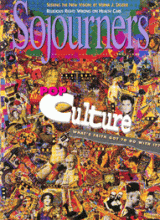At a recent Washington, D.C. meeting for church leaders and activists, keynote speaker Kathleen Kennedy-Townsend declared that some young people of the street were "monsters" who could not be saved and we would have to give up on them. This statement is frightening, given that Kennedy-Townsenda Justice Department official from one of the countrys most liberal familiesreflects the thinking of many Americans caught up in fear and anger over violent crime.
Crime and violence have come to dominate the national discourse, and this context has generated the federal crime bill now under consideration by Congress. Shortly after Bill Clintons stimulus package to create jobs went down in defeat, the Senate somehow managed to find $22 billion for a crime bill.
Although crime and violence are very real problems in our cities and elsewhere, the current intense focus is not emerging out of a dramatic increase in crime. In fact, FBI and local police statistics indicate that crime is going down. Crime has become a diversionary and divisive issue that keeps the focus off the real systemic problems facing this country.
The crime bill serves both political and economic ends. It is being driven by its political value to those in power who want to maintain high poll ratings and those out of power who see it as a means to obtain office or influence. Both parties are jockeying for the "tough on crime" label.
Economically, controlling violence and crime is big business in America. The crime bill is a jobs billbut not for those in the inner-city area where it is most needed. The bill calls for $9 billion for the hiring of 100,000 new police officers (how many will come from the areas where they will be deployed?) and $3 billion for the building of prisons. And what of inner-city youth? Well, they can have the inmate jobs which pay 25 cents an hour.
Read the Full Article
